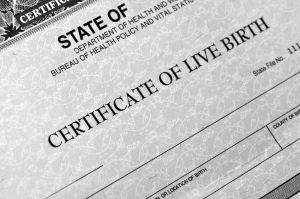630-462-9500
After Hour New Client Telephone Number 630-690-6077
1776 S. Naperville Road, Building B, Suite 202,
Wheaton, IL 60189
Recent Blog Posts
How Can I Best Prepare for a High-Conflict Divorce?
 If you are planning to get a divorce, you may be concerned about how conflict with your spouse will affect the divorce process. In an ideal world, divorcing spouses would be cooperative, cordial, and kind to each other. However, the reality is that some divorce cases are filled with bitterness and disputes from beginning to end. Regardless of why your divorce is contentious, working with a skilled lawyer is one of the best ways to avoid drama during your divorce. Your lawyer can help you properly prepare for the divorce so that it goes as smoothly as possible.
If you are planning to get a divorce, you may be concerned about how conflict with your spouse will affect the divorce process. In an ideal world, divorcing spouses would be cooperative, cordial, and kind to each other. However, the reality is that some divorce cases are filled with bitterness and disputes from beginning to end. Regardless of why your divorce is contentious, working with a skilled lawyer is one of the best ways to avoid drama during your divorce. Your lawyer can help you properly prepare for the divorce so that it goes as smoothly as possible.
Take Stock of Your Financial Situation
If you suspect that your divorce will be less than pleasant, it is important to prepare for divorce in advance. One issue you should be concerned with is whether your spouse will be truthful and forthcoming about financial information. Finances can influence everything from child support to the division of marital assets and debts, so having an accurate assessment of your finances and your spouse's finances is essential. Take inventory of your income, assets, debts, and expenses. Gather tax returns, bank statements, loan documents, and other financial information. You may also want to take photographs of valuable personal property in case your spouse tries to hide or destroy it.
How Can I Ensure a Fair Divorce Settlement if My Spouse Hides Income?
 Many of the important issues raised in a divorce involve financial matters. In order to equitably divide marital assets and debts, determine a spouse's child support payments, or establish spousal maintenance, a truthful and complete account of both spouse's finances is needed. Spouses are expected to disclose all sources of income or revenue during divorce. However, some spouses lie about their income and assets. They may underreport income or hide sources of revenue in an effort to gain an advantage during the divorce or avoid paying their fair share of support. If you are worried that your spouse will hide income or assets during your divorce, it is important to speak with a divorce lawyer experienced in uncovering hidden assets right away.
Many of the important issues raised in a divorce involve financial matters. In order to equitably divide marital assets and debts, determine a spouse's child support payments, or establish spousal maintenance, a truthful and complete account of both spouse's finances is needed. Spouses are expected to disclose all sources of income or revenue during divorce. However, some spouses lie about their income and assets. They may underreport income or hide sources of revenue in an effort to gain an advantage during the divorce or avoid paying their fair share of support. If you are worried that your spouse will hide income or assets during your divorce, it is important to speak with a divorce lawyer experienced in uncovering hidden assets right away.
Gathering Financial Information During Divorce
What Illinois Business Owners Need to Know When Getting Divorced
 When a married couple divorces, the spouses divide their property and debt. When most people think about asset division during divorce, they think about dividing physical property such as furniture or vehicles. However, a business is an asset just like any other piece of property. If your business was purchased or established during your marriage, both spouses have a right to the business according to Illinois law. If you are a business owner who is considering divorce, it is crucial that you understand how businesses may be valued and divided in an Illinois divorce.
When a married couple divorces, the spouses divide their property and debt. When most people think about asset division during divorce, they think about dividing physical property such as furniture or vehicles. However, a business is an asset just like any other piece of property. If your business was purchased or established during your marriage, both spouses have a right to the business according to Illinois law. If you are a business owner who is considering divorce, it is crucial that you understand how businesses may be valued and divided in an Illinois divorce.
Does My Spouse Have a Right to My Business?
If you are solely responsible for managing your business, you may assume that you are entitled to keep the business upon divorce. However, this is not always the case. Illinois law considers any property acquired during the marriage to be part of the marital estate. Property that was acquired before the marriage is classified as “separate property” and assigned to the spouse who originally acquired the asset. However, even if you founded or acquired a business before you got married, an increase in the value of the business during your marriage may be considered marital property. This is especially true if your spouse contributed to the increased value of the business, and in these cases, you may be required to reimburse your spouse for their contributions.
Is a Spouse Who Earns More Entitled to More of the Marital Estate?
 While we often think of marriage as a personal or romantic union, it is also a financial partnership. When two people get married, they combine their financial resources, either intentionally or unintentionally. Therefore, the end of the marriage comes with considerable financial implications. If you are planning to get divorced, you may have questions about how your property will be divided. You may specifically wonder if the spouse who earned the majority of the income during the marriage is entitled to more of the marital estate during divorce.
While we often think of marriage as a personal or romantic union, it is also a financial partnership. When two people get married, they combine their financial resources, either intentionally or unintentionally. Therefore, the end of the marriage comes with considerable financial implications. If you are planning to get divorced, you may have questions about how your property will be divided. You may specifically wonder if the spouse who earned the majority of the income during the marriage is entitled to more of the marital estate during divorce.
What Property Is Divided in an Illinois Divorce?
When you file for divorce in Illinois, there are several issues that you will need to resolve. One of these issues is the distribution of marital property. The marital estate consists of property that either spouse accumulated during the course of the marriage. It includes real estate, personal property, collectibles, investments, retirement accounts, and other assets that were obtained while the couple was married. Separate property includes property gained by inheritance or property that a spouse acquired before the marriage took place or after a legal separation. However, understanding what is included in the marital estate and what is separate property is not always easy. Issues like commingled or combined assets can complicate property division during divorce.
Is it Advantageous to File for Divorce First in Illinois?
 Marriages end for innumerable reasons. Sometimes, one spouse wants the divorce, while the other spouse believes that the marriage is salvageable. Other times, the spouses both agree that it is time to call it quits. Whatever your situation, you may have questions about the divorce process and how to get started. One particular question you may be asking yourself is, “Does it matter which spouse files for divorce?”
Marriages end for innumerable reasons. Sometimes, one spouse wants the divorce, while the other spouse believes that the marriage is salvageable. Other times, the spouses both agree that it is time to call it quits. Whatever your situation, you may have questions about the divorce process and how to get started. One particular question you may be asking yourself is, “Does it matter which spouse files for divorce?”
The Basics of Filing for Divorce in Illinois
In Illinois, a divorce is called a Dissolution of Marriage. The spouse who files the Petition for Dissolution of Marriage is the petitioner, and the other spouse is the respondent. To file for divorce in Illinois, at least one of the spouses must have lived in Illinois for at least 90 days prior to filing the petition.
Illinois is a “no-fault” divorce state. This means that the spouses will not be asked to assign blame for the marriage ending. The only grounds for divorce in Illinois is “irreconcilable differences.” When determining the terms of a divorce, Illinois courts do not consider which spouse is the petitioner and which is the respondent. Both spouses are treated equally under the law.
What Should I Do if I Believe My Ex Is a Danger to Our Children?
 When parents divorce, they will typically share parental responsibilities and parenting time. A shared custody arrangement can be a great way to ensure that a child gets to spend time with both of his or her parents. Illinois courts typically favor parenting schedules that keep both parents in the child's life. However, there are some situations in which spending time with a parent may not be in the child's best interests. If you are an unmarried or divorced parent, and you have concerns about your child's safety during the other parent's parenting time, you should know that you have the right to ask for his or her parenting time to be restricted.
When parents divorce, they will typically share parental responsibilities and parenting time. A shared custody arrangement can be a great way to ensure that a child gets to spend time with both of his or her parents. Illinois courts typically favor parenting schedules that keep both parents in the child's life. However, there are some situations in which spending time with a parent may not be in the child's best interests. If you are an unmarried or divorced parent, and you have concerns about your child's safety during the other parent's parenting time, you should know that you have the right to ask for his or her parenting time to be restricted.
Take Steps to Protect Your Children's Immediate Safety
If there is an immediate threat to your child's well-being, do not hesitate to take action. Your child's safety comes first. If you believe your child is in a situation in which they could be injured or killed, call 911. You may also take steps to obtain an order of protection that will prevent the other parent from committing any actions that could harm you or your child.
When Should I Introduce a New Partner to My Children After Divorce?
 Whether you are planning to get a divorce, or you have already begun the process of ending your marriage, you have probably thought about dating. One of the silver linings of divorce is that the spouses are free to search for new romantic partners who are a better match for them. Getting back into the dating world after being married can be exciting. However, when you are a parent, there are additional issues to consider. One of these issues is when to introduce a new partner to your children. There is no perfect time to introduce a new partner, but there are certain considerations you could keep in mind when dating after divorce.
Whether you are planning to get a divorce, or you have already begun the process of ending your marriage, you have probably thought about dating. One of the silver linings of divorce is that the spouses are free to search for new romantic partners who are a better match for them. Getting back into the dating world after being married can be exciting. However, when you are a parent, there are additional issues to consider. One of these issues is when to introduce a new partner to your children. There is no perfect time to introduce a new partner, but there are certain considerations you could keep in mind when dating after divorce.
Wait Until After the Divorce Is Complete
Most experts suggest waiting to date until after your divorce is finalized. However, no one can predict when they will meet the right person. If you already have a new romantic interest, and your divorce is not complete, it may be best to avoid introducing the new partner to your children until the divorce is finalized.
Should I List My Child's Father on Their Birth Certificate?
 If you are an unmarried mother who is expecting a child, you probably have several questions and concerns. If your pregnancy was unexpected, or if you are no longer in a relationship with your baby's father, you may wonder whether you should tell the father about the pregnancy or list him on your baby's birth certificate. You may also wonder if you will be entitled to child support or if your child's father will have a right to spend time with the child after he or she is born. The term “paternity” refers to a father's legal relationship to his child. There are several benefits to establishing paternity in Illinois.
If you are an unmarried mother who is expecting a child, you probably have several questions and concerns. If your pregnancy was unexpected, or if you are no longer in a relationship with your baby's father, you may wonder whether you should tell the father about the pregnancy or list him on your baby's birth certificate. You may also wonder if you will be entitled to child support or if your child's father will have a right to spend time with the child after he or she is born. The term “paternity” refers to a father's legal relationship to his child. There are several benefits to establishing paternity in Illinois.
Paternity of a Child for an Unmarried Father
When a married woman has a child, the law presumes the woman's husband to be the father. The couple does not need to take extra steps to establish paternity before writing the father's name on the birth certificate. If a mother is not married, there is no presumption about the child's father. Paternity or legal parentage must be established by signing a Voluntary Acknowledgement of Paternity (VAP) form. Paternity may also be established through the courts or via an administrative process through the Illinois Department of Healthcare and Family Services.
How Will Cheating or Infidelity Affect an Illinois Divorce?
 Cheating and affairs in a marriage often lead to divorce. In some cases, spouses file for divorce immediately after the affair comes to light. In other cases, a couple may try to salvage their marriage after an affair, but they may ultimately decide that too much damage to the relationship has occurred. If you have found yourself in this situation, you may be unsure of what to do. Whether the unfaithful partner was you or your spouse, you probably have questions about how marital infidelity can influence an Illinois divorce. Regardless of the exact circumstances, infidelity can lead to additional contention and confusion in a divorce. An experienced divorce lawyer can help.
Cheating and affairs in a marriage often lead to divorce. In some cases, spouses file for divorce immediately after the affair comes to light. In other cases, a couple may try to salvage their marriage after an affair, but they may ultimately decide that too much damage to the relationship has occurred. If you have found yourself in this situation, you may be unsure of what to do. Whether the unfaithful partner was you or your spouse, you probably have questions about how marital infidelity can influence an Illinois divorce. Regardless of the exact circumstances, infidelity can lead to additional contention and confusion in a divorce. An experienced divorce lawyer can help.
Grounds for Divorce
Illinois is a no-fault divorce state. The state's laws previously included fault-based “grounds” or reasons for divorce, such as abandonment, cruelty, and infidelity. However, Illinois has since eliminated these grounds. Now, the only grounds available when filing for divorce is “irreconcilable differences.” Infidelity or other reasons for ending their marriage will not be included in a spouse's petition for divorce.
3 Myths About Divorce Mediation
 If you are ready to end your marriage, you are probably looking for ways to eliminate drama, reduce legal costs, and reach a fair divorce settlement. In many cases, divorce mediation can help couples reach a resolution about the terms of their divorce without going to court. Divorce mediation is a process during which a couple works on addressing and resolving their outstanding legal issues with the help of a specially-trained mediator. During mediation, you and your spouse may discuss the division of marital property and debts, the allocation of parental responsibilities and parenting time, spousal maintenance, and other issues. However, it is important to understand what divorce mediation is and is not before deciding to use mediation as your primary means of reaching a resolution.
If you are ready to end your marriage, you are probably looking for ways to eliminate drama, reduce legal costs, and reach a fair divorce settlement. In many cases, divorce mediation can help couples reach a resolution about the terms of their divorce without going to court. Divorce mediation is a process during which a couple works on addressing and resolving their outstanding legal issues with the help of a specially-trained mediator. During mediation, you and your spouse may discuss the division of marital property and debts, the allocation of parental responsibilities and parenting time, spousal maintenance, and other issues. However, it is important to understand what divorce mediation is and is not before deciding to use mediation as your primary means of reaching a resolution.




















